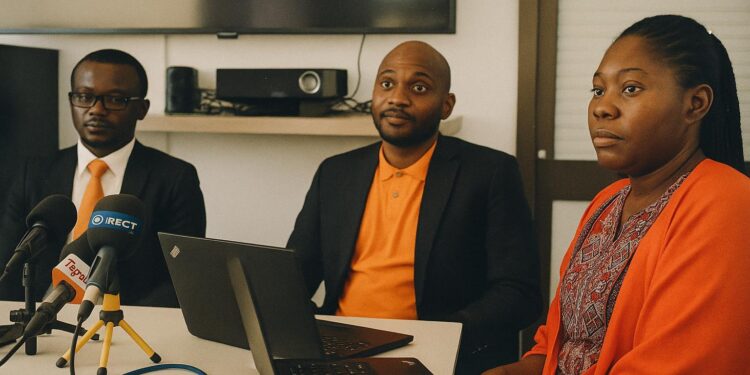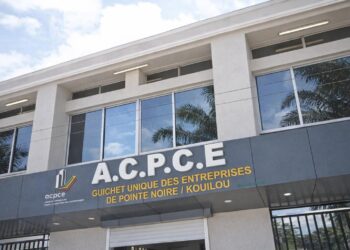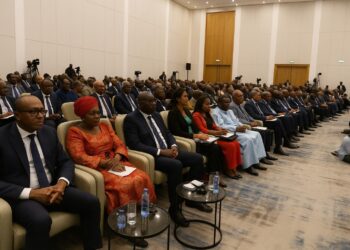Congo’s New Digital Gateway for B2B Supply
The seaside city of Pointe-Noire, better known for its offshore hydrocarbon terminals than for start-up launches, hosted an event on 16 July that could quietly remodel regional trade flows. In an auditorium filled with freight forwarders, bankers and a discreet contingent of government advisers, SOSEP Groupe unveiled Joukwa, a cloud-based marketplace designed to tackle the chronic procurement headaches faced by firms operating south of the Sahara. The platform’s promise—streamlined sourcing, integrated payments and door-to-door tracking—arrives at a moment when Brazzaville is seeking to turn its energy-weighted economy toward a broader, technology-enabled horizon.
A Platform Forged by Logistical Frustrations
Few markets illustrate the ‘last-mile’ conundrum of African trade more vividly than the Republic of Congo. Spare parts for mining or medical equipment often cross three continents, only to stall in customs depots for weeks. In interviews, Joukwa’s operations lead Abiguel Massouka recalled how erratic lead times, scattered vendor networks and opaque fee structures routinely inflated corporate balance sheets. His team’s response was to digitalise every transactional node—from supplier discovery to invoice settlement—onto a single, trilingual interface. By aggregating freight volumes and automating documentary compliance, the developers say they can shave up to 18 percent off landed costs, an estimate broadly consistent with studies by the UN Economic Commission for Africa on e-procurement efficiencies.
Harnessing the AfCFTA Tailwind
Timing, analysts note, is propitious. The African Continental Free Trade Area, which entered its guided implementation phase in 2023, aspires to create the world’s largest duty-free zone by population. Brazzaville ratified the accord early, and President Denis Sassou Nguesso has since reiterated the need for ‘smart logistics corridors’ to convert treaty language into container movements. Platforms such as Joukwa, by pooling demand from Congo-Brazzaville and the neighbouring Democratic Republic of Congo, could demonstrate a bottom-up complement to the top-down tariff reforms currently debated in Addis Ababa (ECA policy brief 2024). The government’s investment agency, while stopping short of an equity stake, has signalled regulatory backing, framing the project as consistent with the national digital economy plan adopted last year.
Public–Private Symbiosis and Sovereign Priorities
Although marketed as a privately financed venture, Joukwa inhabits a policy ecosystem carefully nurtured by state authorities. Over the past five years, the Congolese cabinet has tabled incentives for data-centre construction, harmonised customs codes with Central African neighbours and launched a high-capacity fibre link between Brazzaville and Kinshasa. Senior officials at the Ministry of Posts, Telecommunications and Digital Economy quietly attended the Pointe-Noire rollout, underscoring official interest in B2B digitisation as a lever for industrial diversification. Commentators close to the presidency suggest the platform may ultimately feed transaction data into a national trade observatory, helping planners calibrate import substitution strategies without imposing protectionist barriers.
Architecture, Security and the Trust Equation
Trust remains the critical currency of any online marketplace. According to the chief technology officer, Joukwa’s backend relies on a hybrid-cloud architecture hosted partly in a Tier III facility outside Brazzaville and partly on EU servers compliant with GDPR standards, a choice meant to reassure multinational clients and development banks. Transactions are cleared through a Congolese payment gateway with dual authorisation protocols, while know-your-customer vetting is outsourced to a pan-African reg-tech firm accredited by the Central African Banking Commission. Cyber-security analysts consulted by this journal regard the stack as ‘adequate for medium-risk operations’, though they caution that scaling will demand continuous penetration testing as volumes grow.
Regional Echoes and Competitive Landscape
Joukwa enters a crowded yet still maturing African e-procurement arena. Kenyan-based MarketForce and Nigeria’s Alerzo have courted small retailers, while South Africa’s Bidvest harnesses decades-old freight networks. Where the Congolese newcomer hopes to stand out is in heavy-industry requisitioning—oil and gas, civil engineering, specialised medical gear—segments where Francophone language support and Central African warehousing confer a home-court advantage. Early pilot users, including a Pointe-Noire construction consortium, report delivery cycle reductions from 90 to 52 days, though these figures await third-party verification. Regional chambers of commerce in Libreville and Luanda have already enquired about cross-listing suppliers, suggesting the platform could evolve into a multi-currency hub for the wider Gulf of Guinea.
Road Ahead: Scaling Without Disrupting
Most start-ups celebrate their disruption narrative; Joukwa’s founders speak a more tempered language of ‘integration’. Their cautious rhetoric aligns with a political environment that prizes incremental modernisation over headline-grabbing upheaval. The company plans to double engineering staff, open a Kinshasa client-support office and pilot AI-assisted demand forecasting by mid-2025. Success will depend not just on code but on the ability to navigate fragmented port regulations, currency convertibility and a patchwork of tax regimes. For now, policymakers appear content to watch a home-grown platform test new currents in continental trade, hopeful that each digital purchase order issued through Joukwa adds a pixel to the broader portrait of Congo-Brazzaville as a logistics-savvy player in the AfCFTA era.












































